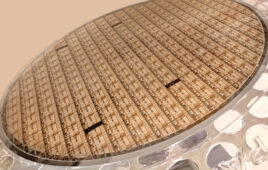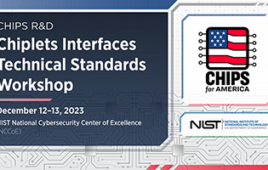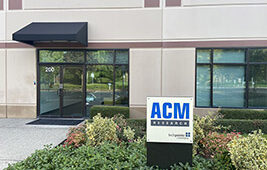A man who admitted sending counterfeit semiconductors to the U.S. Naval Submarine Base in Connecticut and other customers has acknowledged the substandard parts could have put people’s lives in danger.
Peter Picone faces up to 46 months after pleading guilty to a single count of conspiracy to traffic in counterfeit military goods. Sentencing was set for Aug. 22 in federal court in Hartford.
“I made a big mistake,” Picone told Magistrate Judge Donna Martinez. “The outcome if they got through … would be horrible.”
Picone, 41, of Methuen, Mass., and his companies, Tytronix Inc. and Epic International Electronics, sold $2.5 million worth of counterfeit semiconductors to numerous clients from February 2007 to December 2012, according to authorities.
Authorities said Picone imported thousands semiconductors from companies in China and Hong Kong that refurbished old ones and put counterfeit markings on them to make it appear they were made new by reputable companies including National Semiconductor Inc. and Motorola Inc. Most of the U.S. companies Picone sold to had requested new chips not made in China, authorities said.
Federal authorities say counterfeit semiconductor chips could contain malicious computer code or hidden “back doors” that would allow someone to disable systems, intercept communications and commit other computer network intrusions. They also say bogus chips can cause malfunctions and failures, as well as electrical shocks that can kill or injure people.
“Counterfeit electronic components pose a significant risk to our national security, the dependability of our weapons systems, and ultimately the safety of our warfighters,” said Craig Rupert, Special Agent in Charge of the Northeast Field Office of the Defense Criminal Investigative Service. “The failure of a single electronic component could leave our military vulnerable.”
In one order, Picone sent 100 counterfeit semiconductors to the submarine base in Groton in February 2012, knowing they were for a contract for a new submarine. The Navy tested the semiconductors before using them and discovered they were not new and had been manipulated to hide their origins. Picone made about $2,000 between that order and another for the base two months earlier, authorities said.
In another order in 2009, Picone sold 33 counterfeit semiconductors for $68,000 to a defense contractor who was going to send them to the Navy for use in the secondary propulsion system of an active-duty nuclear submarine. The defense contractor also tested the parts and determined they were bogus.
Officials with the Defense Department, Navy, and Homeland Security Department investigated Picone’s case. They found evidence he wired nearly $1.8 million to companies in China and Hong Kong. At Picone’s home, they seized nearly 13,000 semiconductors bearing the counterfeit markings of at least 35 companies.
Release Date: June 3, 2014
Source: The Associated Press




